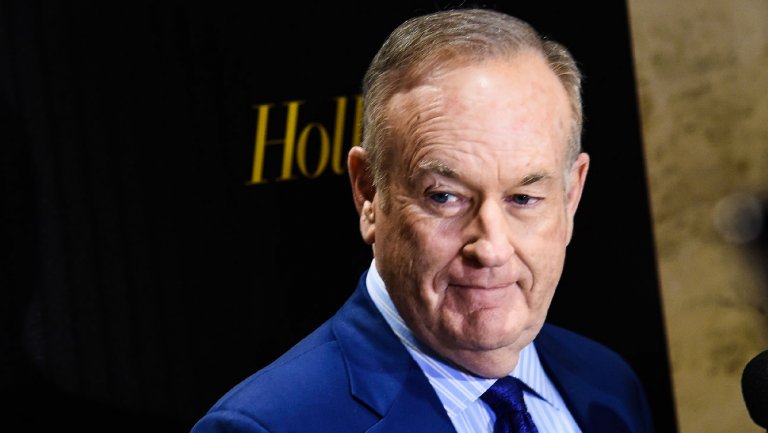Why #MeToo Advocates Should Be Rooting for Bill O'Reilly to Beat a Lawsuit
Rachel Witlieb Bernstein is doing what some alleged sexual abusers have contemplated: suing over the non-disparagement and confidentiality clauses of an old settlement.
When Bill O'Reilly was sued earlier this week by a woman who previously settled claims against him, there was a certain level of schadenfreude in some quarters. The guy who paid tens of millions of dollars to hush his accusers has now been hauled into court over his holier-than-thou reaction to news reports about his alleged sexual misconduct. Cosmic justice, no?
Well, not so fast. There's at least a couple of reasons why a loss for O'Reilly in this particular legal dispute may not be such a positive development for those who believe victims of sexual harassment and assault should come forward regardless of old settlements.
For starters, understand that in her lawsuit, Rachel Witlieb Bernstein is seeking to enforce the non-disparagement and confidentiality provisions of her agreement with O'Reilly and Fox News.
Usually, when the discussion pertains to these sorts of things, it's the accused who is looking to gain the benefit of the hush-up contract. It's partly how Harvey Weinstein managed to keep secret for many years his own alleged misdeeds. There may very well be reasons why women could and should come forward anyway — like the importance of what they have to say — but that's always balanced against the consequences. Among other factors, when deciding what to do about a breach, a court would likely consider public policy considerations and whether the information conveyed was actually confidential in deciding whether to uphold a non-disclosure agreement. And when it comes to figuring out what damages to assess, it's all about the injury.
With that in context comes Bernstein claiming that she should be compensated for a breach of a 2002 agreement through the press statements made in the wake of a New York Times story about O'Reilly's past behavior.
O'Reilly is said to have violated the non-disparagement clause by stating, "Just like other prominent and controversial people, I'm vulnerable to lawsuits from individuals who want me to pay them to avoid negative publicity. In my more than 20 years at Fox News Channel, no one has ever filed a complaint about me with the Human Resource Department, even on the anonymous hotline."
Bernstein is not specifically referenced in this comment as well as several similar ones from O'Reilly, which will probably lead a judge to examine whether the statement was truly of and concerning her and really did disparage her.
Should Bernstein prevail on an argument that a judge should incorporate the context of the statement and interpret the settlement agreement in the widest possible way, it could establish some legal precedent and perhaps end up hurting others who wish to obliquely address their plights without tripping over old settlement agreements. Does anyone think, for example, that Weinstein should have sued any of the women he settled with for addressing sexual harassment victimization in general?
In fact, Bernstein's complaint repeatedly asks a judge to read into things.
For example, Fox News is claimed to have violated both the non-disparagement and confidentiality clauses by issuing a statement that reads: "Notwithstanding the fact that no current or former Fox News employee ever took advantage of the 21st Century Fox hotline to raise a concern about Bill O'Reilly, even anonymously, we have looked into these matters over the last few months and discussed them with Mr. O'Reilly. …"
Bernstein says the statement is false and misleading because she complained to Fox human resources, Bill Shine and other executives, and that there was no hotline at Fox during her employment. But read the above statement again. All Fox says is that no employee took advantage of the hotline. Never does Fox say nobody ever went to human resources about O'Reilly and never does it represent that the hotline existed during Bernstein's employment about 15 years ago.
Of course, there will be those who say such analysis splits hairs, but that's exactly what judges are tasked to do. And if liability attaches to statements not particularized or directed, then there are going to be women out there who will be sued for simply tweeting, "#metoo."
Bernstein also brings a defamation claim against O'Reilly for saying she never complained about him, that he didn't mistreat her and that she's an extortionate liar.
Except again, that's not what O'Reilly specifically said. At worst, that might be what O'Reilly implied by talking about all those who were politically and financially out to get him.
The problem here is that there are many bad individuals who use defamation law as a sword to deter unkind speech. And defamation plaintiffs would like nothing better than for judges to relax legal standards. If innuendo and generalized statements that are arguably not of and concerning the plaintiff are accepted as grounds for a defamation lawsuit, that could deter accusers from coming forward to deal with sensitive subjects like sexual abuse.
There may be those who stick fingers in their ears or decide that the prospect of O'Reilly paying through the nose is worth it, but that's no excuse for giving any plaintiff a pass. It's O'Reilly in the defendant's seat now. It might be a real victim tomorrow.
